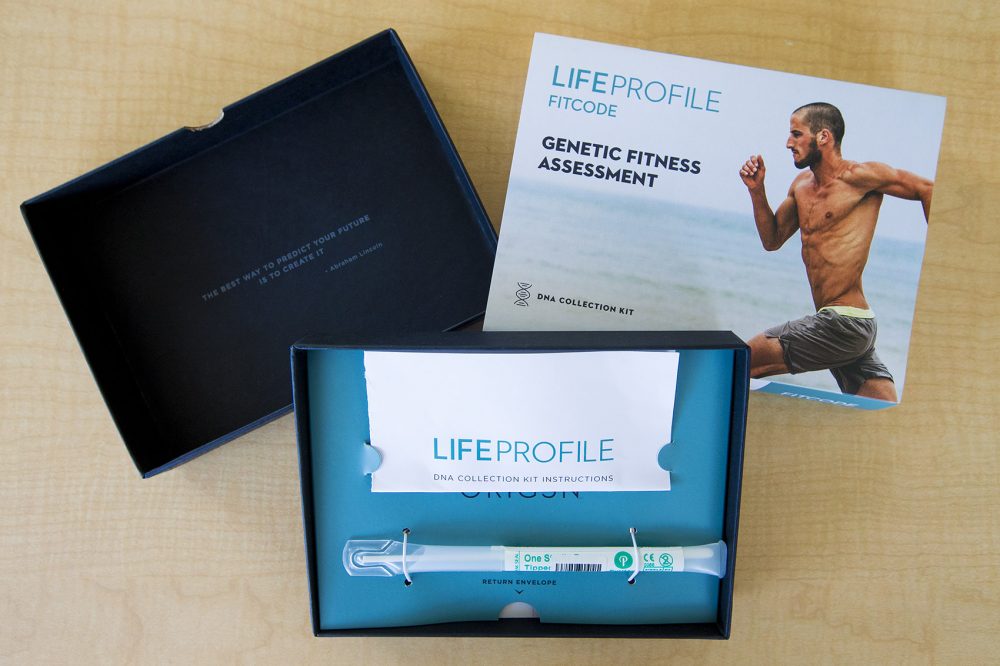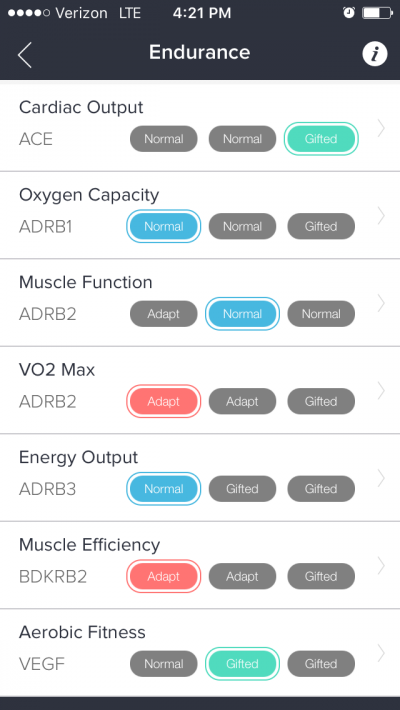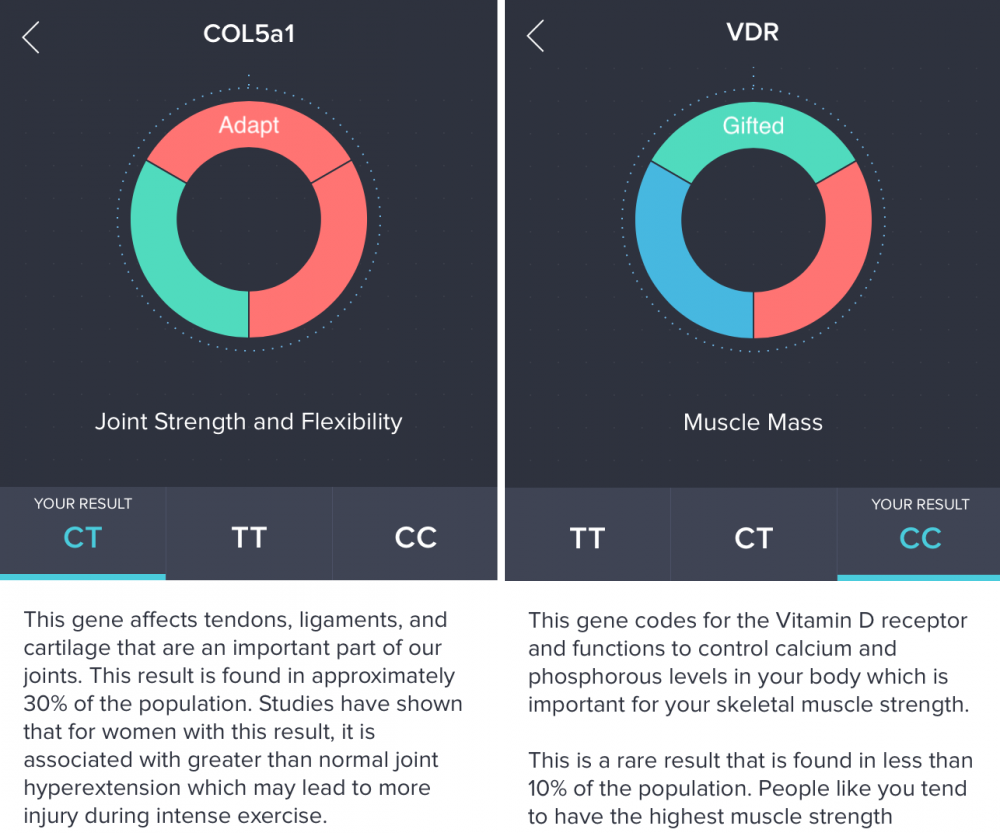Advertisement
With DNA Test, Boston Startup Aims To Give Athletes A Better Understanding Of Their Bodies
Resume
It all starts with a cheek swab.
After twisting open a small, sealed plastic tube to remove a cotton swap, I swipe the inside of my mouth. I’m taking a DNA test at a Boston biotech startup called Orig3n.
Inside a conference room at the company’s headquarters in the Seaport District, Orig3n co-founder Kate Blanchard talks me through the process. "So now put it back in the tube,” she says. "And then put the tube back in this bag." We’re down the hall from the cryotanks where the startup chills blood samples and the laboratory where employees process cheek swabs like mine.
Orig3n focuses mostly on regenerative medicine. The startup hopes to create cell therapies that cure diseases.
But that’s not why I’m handing over my DNA. I’m here for the genetic fitness assessment the company has designed specifically for athletes.
The More Information, The Better
"Athletes are drawn to these tests because they’re always looking for more information to be able to better tune, personalize their training regime to be better,” says Blanchard. “So, this is a new set of information that they didn’t have access to easily before that now they can apply to their training and really use that to get that edge.”

Don’t forget we’re living in the age of the quantified athlete. That means athletes, coaches and teams want more data about how individuals respond to workouts. The more, the better. On a very basic level, that information can come from Fitbits, GPS watches and heart rate monitors.
Orig3n offers information that goes far beyond wearable devices and claims to give athletes an even deeper understanding of how their bodies work.
Blanchard tells me that my test results will reveal if I have a genetic aptitude for building muscle or recovering quickly from workouts. And I'll learn if I'm prone to joint injuries or struggle to absorb certain nutrients.
But I’m not totally sold on the idea. So I ask Blanchard: “Is it really possible that an athlete can figure out how to train better based on their genetics?”
“We get that question a lot," Blanchard says. "And the answer is absolutely. If you have even an inkling or some information that tells you a little bit more about yourself, then you can better tune what you’re eating and how you’re exercising to get even better results.”
Are The Tests Worth The Cost?
Orig3n counts the San Francisco 49ers among its clients and the company expects to add another NFL team to its roster soon. And trainers for pro athletes have purchased the fitness-oriented DNA testing kits for their clients.
Anyone can buy one for $149. But is it worth it?
“If you have some dispensable income and you’re more looking toward finding some tests that have some novelty component that you can talk about with your friends, there might be more value in that,” says Dr. David Sweetser, chief of medical genetics at Massachusetts General Hospital.
He adds that this kind of testing is “not highly accurate” and advises that results be kept in perspective, especially since a variety of factors can lead to athletic success.
“I think the harmful side would be is if you take these types of genetic testing and you think of it as being deterministic in terms of limiting your performance,” Sweetser says.
Marcie Glicksman, Orig3n’s chief scientific officer, also believes genetic fitness tests should be kept in proper perspective. "Basically, it's a tool," she says. "It doesn't mean that it's 100 percent of your destinies."
On The Future Of Genetics And Athletes
Still, the folks at Orig3n believe genetic fitness tests could be commonplace in the future. That’s very clear when I ask Glicksman whether genetic testing will start coming with Little League uniforms in 10 to 20 years.
"I don’t know if it will be with Little League uniforms or if it will be when we’re born,” she says.
Babies being tested for athletic aptitude sounds like something out of the movie "Gattaca."
“Yeah, you know I’m a big sci-fi nerd so I totally know that movie," Blanchard says. "And I can understand and appreciate where people are coming from when they have that idea in their mind. But what we really believe is that this isn’t about design, this is about learning about who you are right now.”
I keep that in mind when I get a flurry of emails notifying me that my results are ready. I ask my colleague Karen Given to look at the results with me as I log into Orig3n’s app. The results are broken into broad categories like endurance, power performance, metabolism and exercise recovery.

I learn I'm gifted in a few areas related to endurance and muscle strength and need to adapt or work on areas related to speed and flexibility. None of the results really surprise me.
So, Karen asks, “Do you feel like you've learned anything about you that you didn't already know?" And I tell her, “I feel like I've got to do a lot more research to know me better."
At least on a genetic level.
The same could be said for the field of genetic fitness assessments. More research is needed to know how much genetics influence athletic performance versus how much comes from the environment, training and the kind of heart that's not easily measured.
This segment aired on August 14, 2017.
